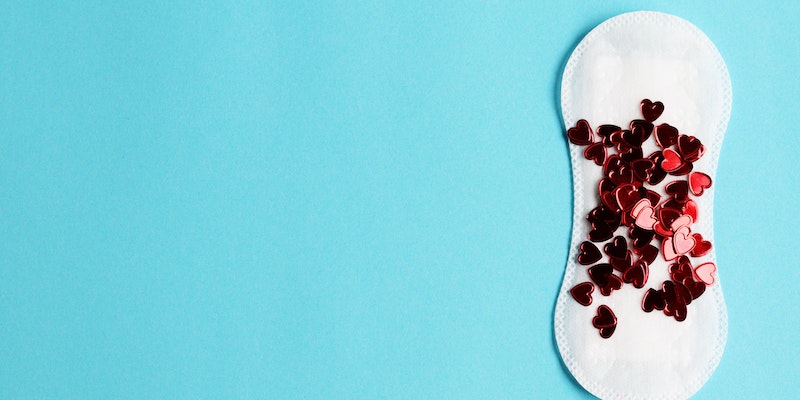Solutions for Winter Dry Scalp
Aug 01, 2024 By Madison Evans
Having to manage a dry scalp during winter can be very difficult because the cold weather and low humidity reduces the amount of moisture in the air and on your hair and scalp. This tends to cause itching and flaking of the skin and any general discomfort. Scalp care is therefore very important to ensure that hair is healthy and not prone to common winter hair issues. Knowing the reasons for winter skin dryness and being able to prevent them can have a massive impact. In this article, we will look at the causes of a dry scalp in winter and realistic and efficient ways on how to maintain a healthy scalp and good hair during the cold season.

Understanding the Causes of Dry Scalp in Winter
Cold Weather and Low Humidity
Dryness is the main cause of a dry scalp and this is mainly due to cold weather and low humidity in winter. Cold air from outside is dry, and this removes the natural oils on the scalp hence causing dryness and itchiness. Moreover, the fluctuations in temperature such as cold climate and indoor heating can also make it worse. Besides, heating systems dry indoor air and as a result, the scalp loses even more moisture, even if the indoor heating system keeps us warm indoors. This leads to a dry and scaly skin on the head accompanied by itching sensations and skin irritation. It is important to guard your scalp from these conditions as they affect the moisture balance of your hair.
Hot Showers and Harsh Hair Products
As much as hot showers can be enjoyable during the cold season, they are not healthy for your hair, particularly your scalp. Hot water removes the natural oils of the scalp making the scalp more dry and itchy. When one uses hot water regularly, the moisture balance of the scalp is affected and this leads to formation of flakes and irritation. Also, the use of aggressive shampoos and styling agents removes further the natural oils of the scalp. Sulfates, alcohols, and fragrances that are typical for hair care products are especially damaging to the hair. Using warm water and mild, moisturizing hair care products should be chosen in order not to harm the scalps moisture.
Diet and Hydration
Proper nutrition and water intake are critical for the condition of your hair and the skin on your head. As winter is a dry season, people take less water and are prone to dehydration which results in dry skin and scalp. Water is a vital commodity that should be taken in adequate amounts to help in the nourishment of the skin including the scalp. Also, inadequate diet that lacks Omega 3 fatty acids, Vitamin A and E, and Zinc can lead to dry and flaky skin on the head. These nutrients are important in maintaining the moisture balance of the scalp and its general health. Including foods with these vitamins in the diet and drinking a lot of water can help improve the health of the scalp and avoid dryness during winter.
Effective Scalp Treatments for Winter Dryness
Moisturizing Shampoos and Conditioners
Selecting the right shampoos and conditioners is important in fighting dryness during the winter seasons. Search for products that are labelled as being for dry scalp and hair. Most of these products include humectants such as glycerin, aloe vera, and hyaluronic acid that assist in moisturizing. Do not use shampoos with sulfates and alcohol as they dry out the scalp and remove its natural moisture. When rinsing, do not forget the scalp and hair as this will help in conditioning them adequately. Beauty items with natural oils like argon oil or shea butter give an additional layer of moisture and protection. Another product that can be used is a leave in conditioner which will also help to keep the hair moist throughout the day.
Natural Oils and Home Remedies
Essential oils are perfect for moisturizing the skin especially the scalp if it is dry. Coconut oil is preferred because it has intense moisturizing abilities and can actually seep into the hair strand. Apply warm coconut oil to hair and scalp and let it sit for 30 minutes or preferably over night and then rinse with a mild soap. Other useful oils are Jojoba oil that is very close to the scalps natural oil; olive oil that has antioxidants and vitamins added to it. This is why using tea tree oil by diluting it with a carrier oil is very effective in reducing dandruff and calming down irritated scalp.
Scalp Exfoliation
The scalp should also be exfoliated to get rid of the dead skin cells and the accumulated products which will create a better surface for the moisturizers and treatments to be absorbed. Make use of a mild scrub on the scalp or a babys brush to scrub the scalp. A scalp scrub that you can prepare at home is brown sugar with coconut oil or honey. Massage the scrub gently in circular motion on the scalp then wash it off. Weekly exfoliation is very effective in enhancing the health of the scalp as it aids in the stimulation of blood circulation and the opening of the hair follicles thus reducing dryness and formation of flakes.

Hydrating Scalp Treatments and Masks
Scalp moisturizing treatments and masks are also good to use in order to get deep moisture and relief from dryness. Choose masks and treatments that include such components as hyaluronic acid, aloe, and shea butter. These ingredients assist in the reduction of dryness and flakiness of the scalp and therefore assist in moisturizing the scalp. Massage the treatment into your scalp and hair, let it sit for the specified amount of time, and then wash out. One can also apply home made hydrating masks like yogurt and honey to the scalp to moisturize and nourish the hair. Application of these treatments is useful and can help maintain the health of your scalp throughout the winter.
Preventive Measures for Maintaining Scalp Health in Winter
In fact, winter is a time when the scalp requires special attention, so one has to be more active as a preventive measure. Begin with proper hair care regimen that involves washing hair with water that has a moderate heat and not hot heat to remove the natural oils of the scalp. Combing your hair less often will help reduce the amount of time that it is exposed to heat, and only use products that are specifically designed to help soothe a dry scalp. Minimise the use of heat styling appliances since they can worsen the condition of the hair. Cover your head with hats and scarves, but ensure that the fabric is not rough on your scalp, use silk or satin. Also, there is a need to drink enough water and consume foods containing omega-3 fatty acids, vitamins, and antioxidants to maintain healthy scalp.
Conclusion
Thus, it is evident that winter dry skin can be controlled and prevented through proper care and measures. It is necessary to understand the causes of such as cold weather, low humidity and harsh hair care practices. To prevent and fix the dry scalp issue, one should use moisturizing shampoos and conditioners, natural oils, scalp exfoliation, and hydrating treatments. Thus, it is possible to prevent hair damage and maintain the health of the scalp by following a proper hair care program and protecting the head from cold weather. If you follow the right procedures of care, then you can be proud of your healthy scalp and good hair throughout the season.
-
 Dec 27, 2023
Dec 27, 2023Menstruation cycle and blood color, what helps with period cramps, late period, and all the facts you need to know.
A Quick Guide: 10 Must-Know Period Facts
-
 Oct 12, 2023
Oct 12, 2023What is scoliosis and how does it affect you?
Do you ever feel a twinge of back pain after sitting in one position for too long? If yes, then it may be similar to scoliosis – a curvature of the spine that affects many people. Whether or not you have heard of this condition before, understanding the basics is essential. In this article, we will cover what exactly scoliosis is and how it may affect your daily life.
-
 Dec 13, 2023
Dec 13, 2023Understanding Chemotherapy: A Comprehensive Guide
Understand the role of chemotherapy in treating cancer, learn about different chemo drugs, and discover ways to manage potential side effects.
-
 Aug 01, 2024
Aug 01, 2024Why Hair Fall Increases in Winter
Discover why hair fall increases in winter and learn effective prevention tips to reduce it.
